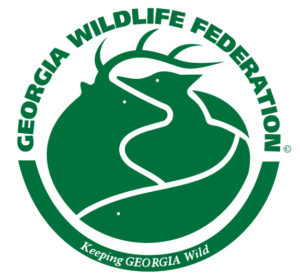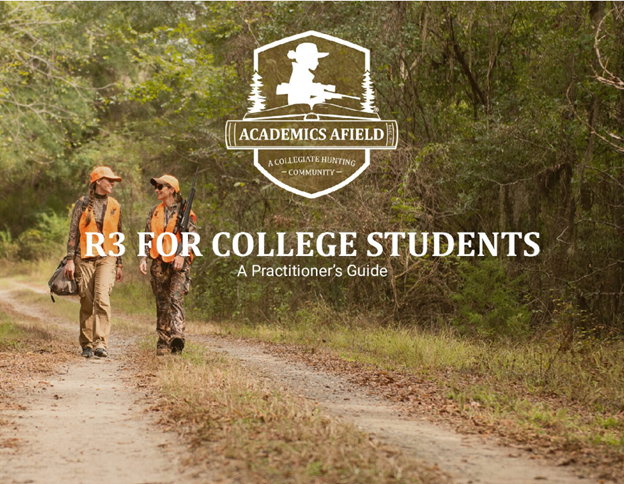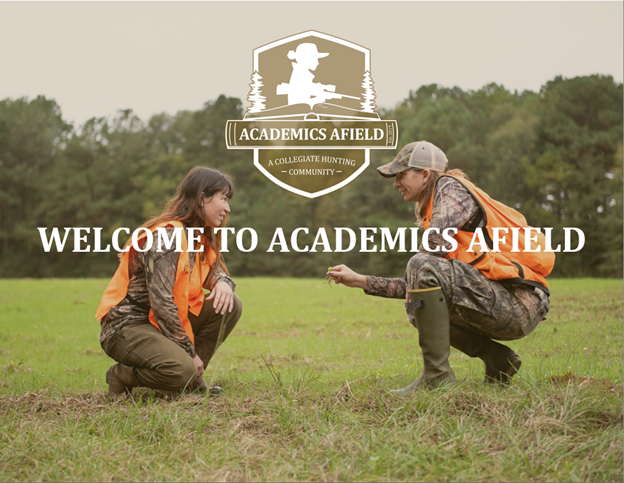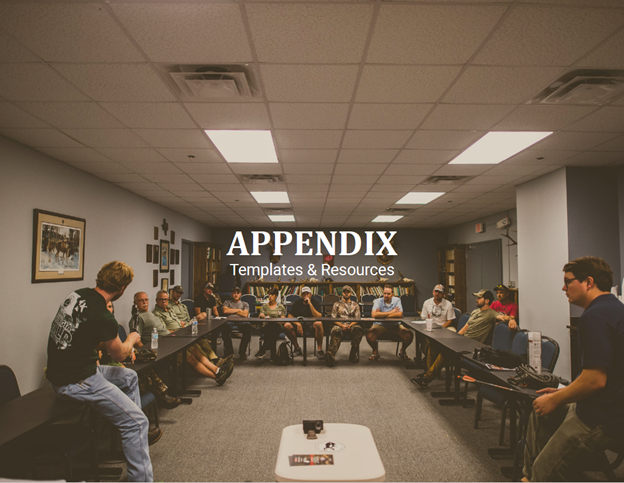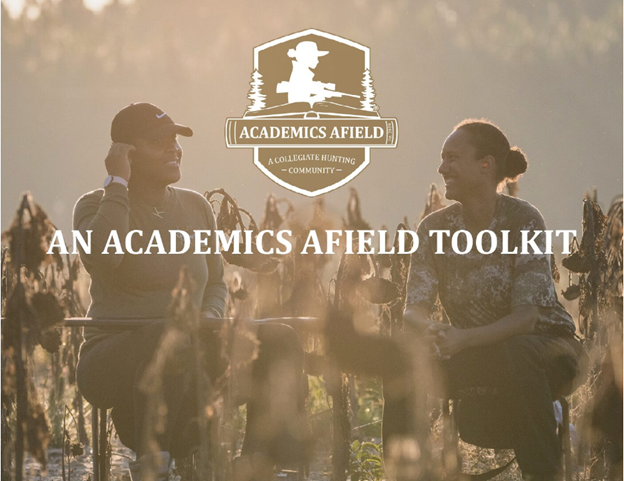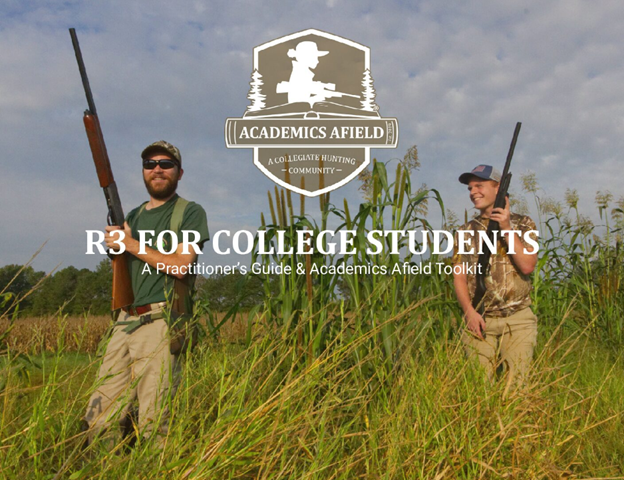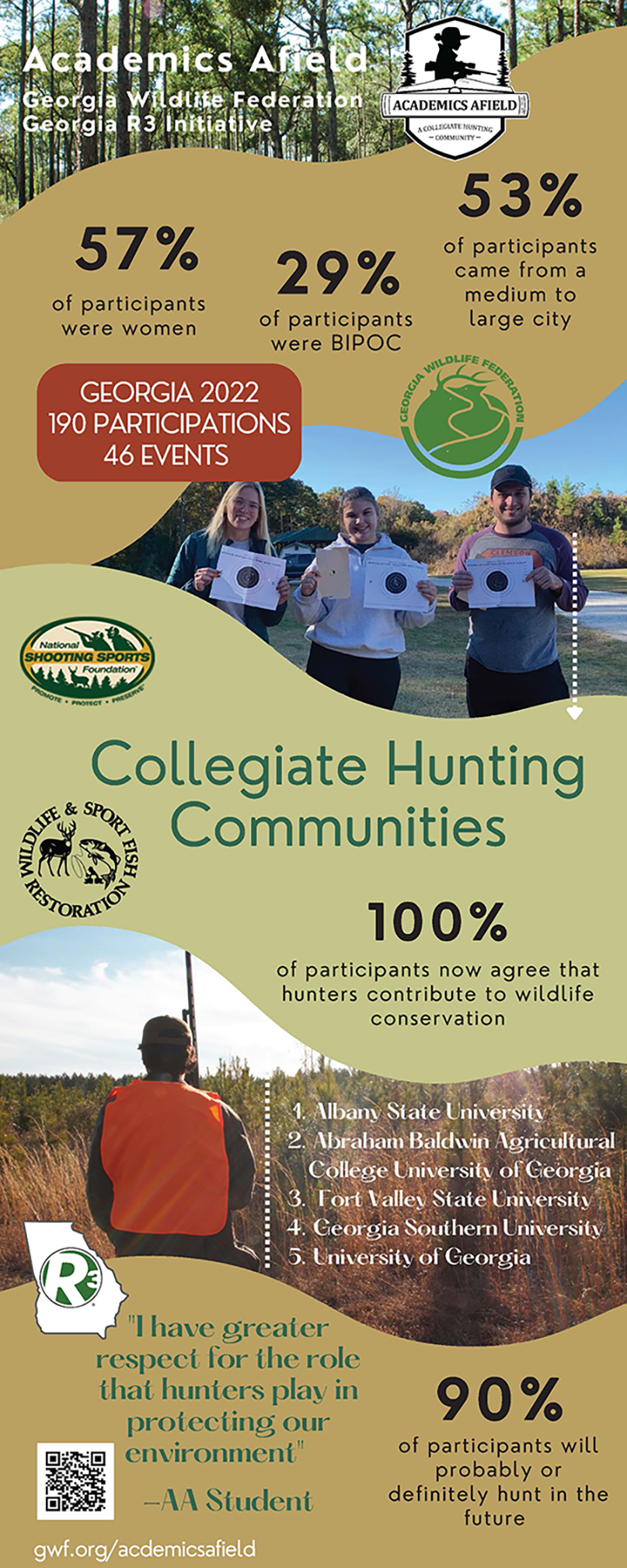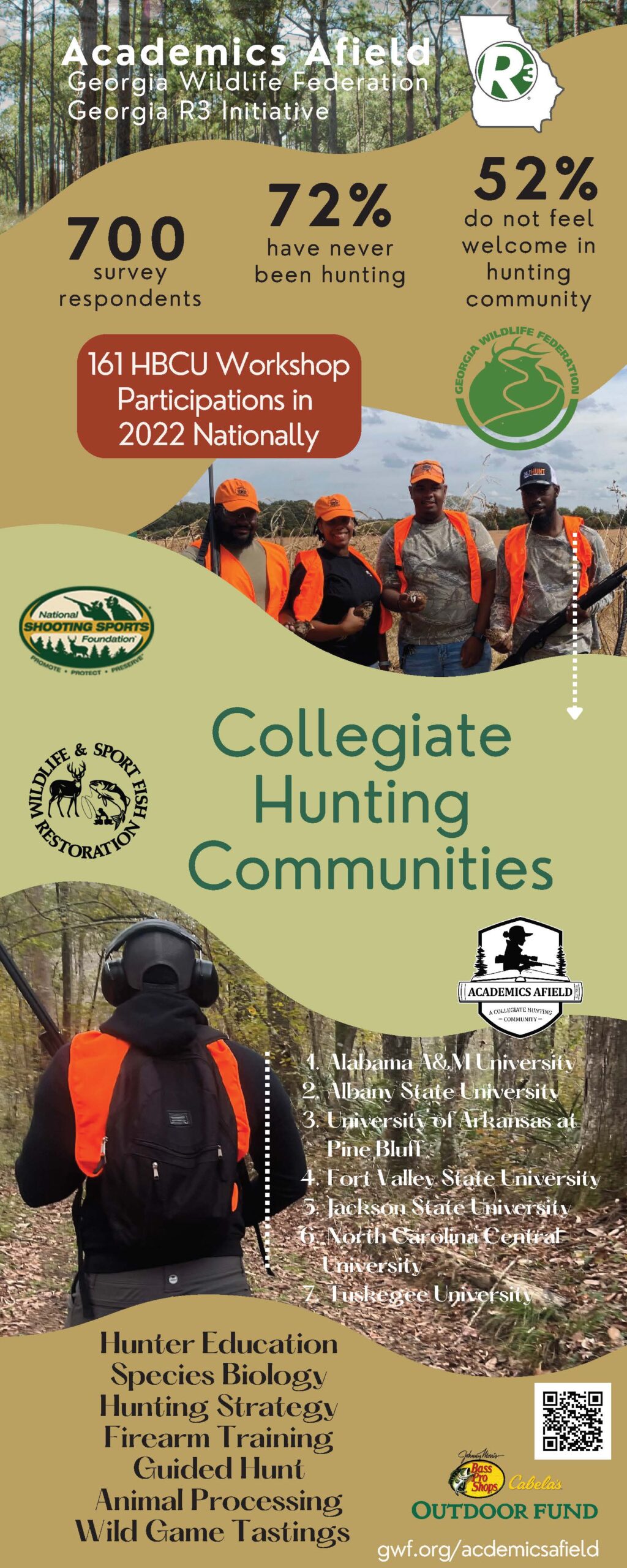R3 For College Students- A Practitioner's Guide and Academics Afield Toolkit
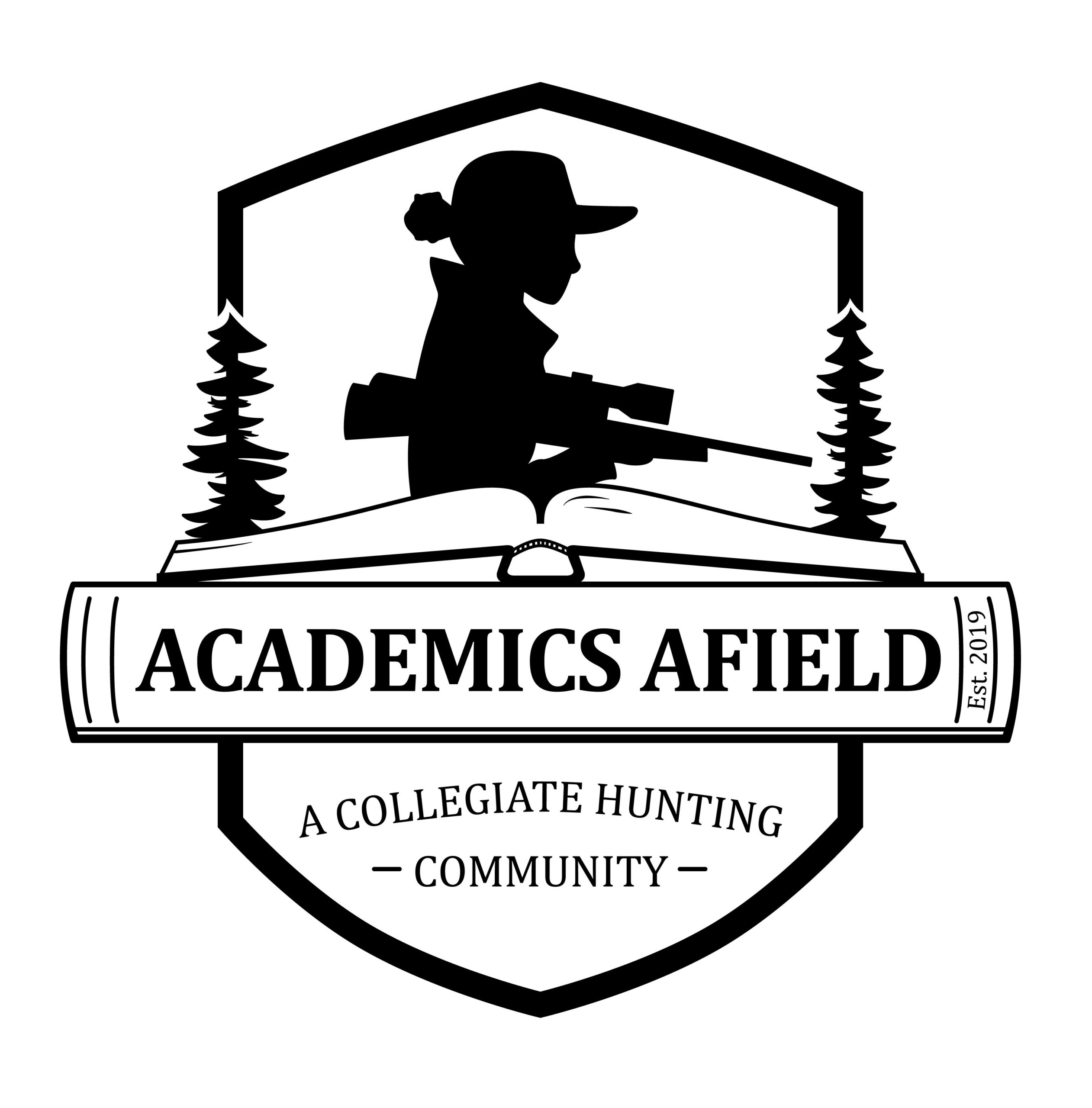
R3 For College Students – A Practitioner’s Guide and Academics Afield Toolkit was developed after years of R3 programming, research, and refinement. Recommendations have been made possible by the support of dozens of conservation professionals and academics across the country. Its purpose is to guide you in developing your own college focused outreach efforts. This guide is broken into two sections. The first, A Practitioner’s Guide, supports the conclusion that college R3 programming efficiently reaches diverse audiences (e.g., women, people of color, young adults from urban areas). The second section, An Academics Afield Toolkit, outlines the curriculum and program implementation advised to create life-long participants. We do not have funding available, but hope to provide you tools to successfully secure your own resources creating great outcomes for conservation.
These projects were supported by the Multi-State Conservation Grant program of the Sport Fish and Wildlife Restoration Programs of the U.S. Fish and Wildlife Service jointly managed by the Association of Fish and Wildlife Agencies (WSFR# #F21AP00678-00, #F18AP00171 and #F19AP00094) National Shooting Sports Foundation, Georgia Wildlife Federation, North Carolina State University, and the Georgia R3 Initiative including GA DNR Wildlife Resources Division, National Wild Turkey Federation, Georgia Chapter of Safari Club International and Ducks Unlimited.
R3 for College Students Guide and Toolkit Resources
The Practitioner’s Guide, PowerPoint Presentations and Appendix is publicly available, but as the Academics Afield Program is copyrighted by Georgia Wildlife Federation, we ask you to provide name and email prior to viewing with the purpose of transparency. To download a single document to view the material in its entirety select the final option “R3 For College Students: A Practitioner’s Guide and Toolkit.” If you have questions reach out to Coral Minchey or by phone at 912.507.3086.
Accomplishments
Contact Info
Coral Minchey
Academics Afield Facilitator
912.507.3086
cminchey@gwf.org
Bre Bashford
R3 Coordinator
bre@gwf.org
